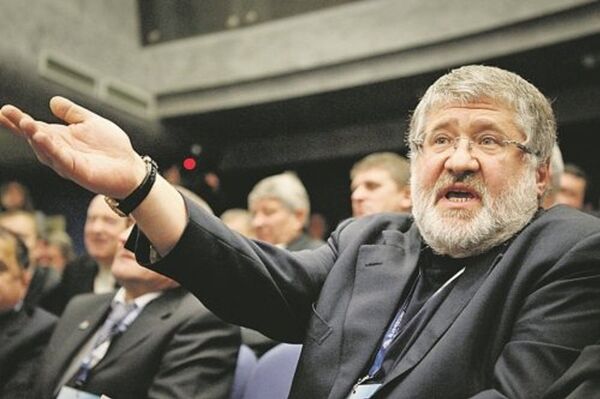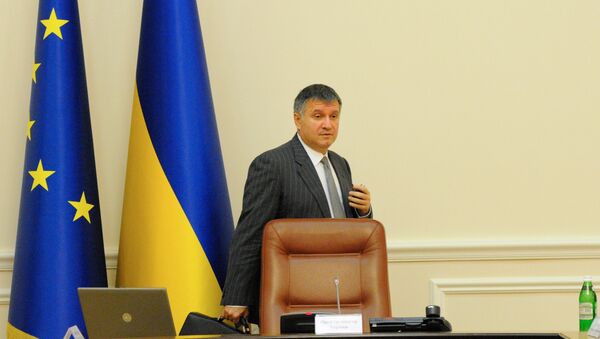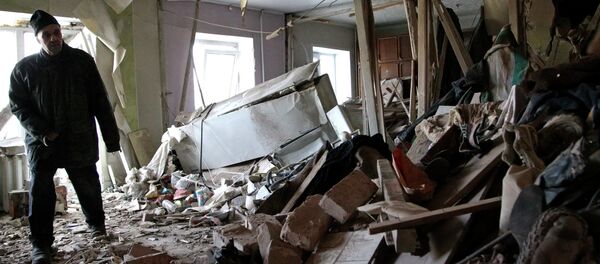MOSCOW (Sputnik) – The Russian Investigative Committee has launched 54 criminal cases against Ukrainian political figures, activists and military commanders amid Kiev’s special operation in the southeast.
"There are over 30 defendants in these criminal cases and the list is not final," Markin said, adding that the defendants include Ukrainian Interior Minister Arsen Avakov, former defense minister Valeriy Heletei and leader of the Right Sector ultranationalist group Dmytro Yarosh.
Markin expressed hope that the number of defendants will stop increasing in the near future and that Kiev will finally abide by the Minsk peace accords, signed in February.
Russia has been skeptical of Kiev’s compliance with the Minsk agreement amid ceasefire violations in the southeast and a lack of consultations with Donetsk and Lugansk representatives regarding constitutional amendments on the decentralization of power.
Russia Wants Ukrainian Interior Minister Avakov, Oligarch Kolomoiskyi on Int’l Wanted List
The Russian Investigative Committee wants to refile a request to place Ukrainian oligarch Ihor Kolomoiskyi, Vladimir Markin also said.
Markin said on Thursday that Interpol considers Russia’s persecution of Avakov, Kolomoiskyi, as well as Ukraine’s former defense minister Valeriy Heletei and other high-ranking officials to be politically motivated.
"But Interpol’s denial does not prohibit a refiling of a request, particularly in a case of new crimes having been committed by the individuals," Markin explained, adding that the Russian Investigative Committee plans to resubmit its request for international wanted list placement "in the foreseeable future."

The Russian Investigative Committee issued international arrest warrants for Kolomoyskyi and Avakov in July 2014, on charges of organizing murders and abductions, using banned means and methods of warfare, and preventing legal journalistic activities.
Russia has accused Kolomoiskyi of sponsoring a number of Ukrainian armed groups, including the Right Sector ultranationalist organization, which became active amid Kiev’s special military operation launched in April 2014 against independence supporters in the southeast.
The West has been accusing Russia of supporting Ukraine’s independence fighters who are against Kiev’s new government, which came to power as a result of a coup in February 2014.
Ukrainian President Petro Poroshenko signed a decree on the dismissal of Ihor Kolomoiskyi from the post of Dnipropetrovsk Regional Governor in March 2015.


